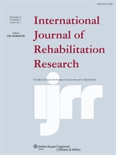
INTERNATIONAL JOURNAL OF REHABILITATION RESEARCH
Scope & Guideline
Fostering excellence in rehabilitation research for global impact.
Introduction
Aims and Scopes
- Empirical Research on Rehabilitation Practices:
The journal publishes original research that investigates various rehabilitation methodologies, including physical therapy, occupational therapy, and innovative approaches like robotic-assisted therapies and constraint-induced movement therapy. - Assessment and Measurement Tools:
A strong emphasis is placed on the development and validation of assessment tools and scales used in rehabilitation, such as the Barthel Index, Community Integration Questionnaire, and various psychometric evaluations. - Interdisciplinary Approaches:
The journal encourages interdisciplinary research that incorporates insights from psychology, neuroscience, and rehabilitation science to enhance treatment efficacy and patient outcomes. - Patient-Centered Outcomes:
Research focusing on patient-reported outcomes, quality of life, and satisfaction within rehabilitation contexts is a core area, highlighting the importance of understanding patient perspectives and experiences. - Innovations in Rehabilitation Technology:
The journal explores cutting-edge technologies in rehabilitation, including virtual reality, exoskeletons, and tele-rehabilitation, aiming to assess their effectiveness and applicability in clinical settings.
Trending and Emerging
- Integration of Technology in Rehabilitation:
Recent publications increasingly explore the use of technology, such as tele-rehabilitation, virtual reality, and robotic devices, indicating a trend towards more accessible and effective rehabilitation solutions. - Focus on Mental Health and Rehabilitation:
There is a rising interest in the interplay between mental health and rehabilitation outcomes, particularly in populations with chronic pain and neurological conditions, highlighting the need for holistic approaches. - Outcome Prediction Models:
Emerging research emphasizes the development of predictive models for rehabilitation outcomes, utilizing factors such as comorbidities, initial assessments, and treatment protocols to enhance individualized care. - Community-Based Rehabilitation Initiatives:
A growing body of work is being published on community participation and rehabilitation, focusing on barriers and facilitators to physical activity and social integration post-rehabilitation. - Crisis Response in Rehabilitation:
The COVID-19 pandemic has spurred research into effective rehabilitation strategies during health crises, indicating an emerging focus on adaptive practices and resilience in rehabilitation settings.
Declining or Waning
- Traditional Physical Rehabilitation Techniques:
There is a noticeable decrease in publications focusing solely on traditional rehabilitation methods, such as basic physiotherapy techniques, as research increasingly emphasizes innovative and technology-driven approaches. - General Disability Studies:
Research that broadly addresses disability without a specific rehabilitation context is becoming less prevalent, as the journal shifts focus towards more targeted studies that directly impact rehabilitation practices. - Longitudinal Studies on Functional Recovery:
Although still relevant, there has been a reduction in the number of longitudinal studies tracking functional recovery in various populations, as the journal has started favoring randomized controlled trials and systematic reviews. - Psychosocial Factors in Rehabilitation:
While psychosocial factors are important, their representation in the journal has diminished, possibly due to a growing emphasis on clinical and physical outcomes over psychological assessments.
Similar Journals
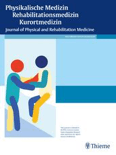
PHYSIKALISCHE MEDIZIN REHABILITATIONSMEDIZIN KURORTMEDIZIN
Empowering Recovery: Insights from the Heart of Rehabilitation SciencePHYSIKALISCHE MEDIZIN REHABILITATIONSMEDIZIN KURORTMEDIZIN, published by GEORG THIEME VERLAG KG, is a prominent journal dedicated to the fields of physical medicine, rehabilitation, and resort medicine. With its ISSN of 0940-6689 and E-ISSN 1439-085X, this journal has been at the forefront of disseminating essential research and innovative practices since its inception. Operating from Germany, it offers a crucial platform for professionals, researchers, and students engaged in exploring the latest advancements in rehabilitation methodologies and therapeutic practices. Although it currently holds a Q4 ranking in several categories including Physical Therapy and Rehabilitation, the journal is committed to enhancing its impact and visibility within the academic community. The journal publishes research, reviews, and clinical studies aimed at improving patient outcomes and advancing the science of rehabilitation. Subscribers can expect high-quality content that addresses both theoretical and practical aspects of rehabilitation medicine, ultimately contributing significantly to ongoing discussions and developments in the field.
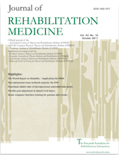
JOURNAL OF REHABILITATION MEDICINE
Unlocking Potential: Pioneering Research in Rehabilitation MedicineJOURNAL OF REHABILITATION MEDICINE, published by the FOUNDATION REHABILITATION INFORMATION in Sweden, stands as a leading platform for the dissemination of groundbreaking research in the field of rehabilitation. With an impact factor that places it in the Q1 category for Physical Therapy and Rehabilitation and a noteworthy Q2 ranking in Sports Science and Medicine (miscellaneous), this journal serves as an essential resource for researchers, clinicians, and students dedicated to improving patient care and rehabilitation outcomes. As an Open Access publication since 2001, it ensures that knowledge is widely accessible, promoting collaborative efforts across the global rehabilitation community. Aiming to bridge the gap between research and clinical practice, the journal covers a comprehensive range of topics, providing a vital forum for innovative studies that advance the understanding and effectiveness of rehabilitation therapies. As it approaches its convergence into 2024, the JOURNAL OF REHABILITATION MEDICINE continues to be a cornerstone for all those committed to advancing rehabilitation sciences.
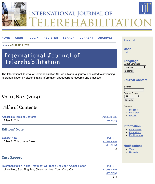
International Journal of Telerehabilitation
Leading the way in telehealth advancements.The International Journal of Telerehabilitation, published by the University of Pittsburgh, University Library System, serves as a premier platform dedicated to advancing research in the emerging field of telerehabilitation. With an open access publishing model since 2009, this journal ensures that vital research findings are readily available to a diverse audience, which includes researchers, practitioners, and students. Covering key disciplines such as health informatics, rehabilitation, and computer science applications, the journal has earned notable rankings, positioning itself in the Q1 category within rehabilitation and Q2 in multiple related fields for 2023. Its impact is underscored by its rankings in Scopus, reflecting a strong commitment to enhancing accessibility and efficacy in health services. The journal endeavors to explore innovative approaches and technologies that enhance rehabilitation practices through telecommunication, paving the way for future developments in patient care and professional training. Researchers and professionals alike are encouraged to contribute to this vital discourse, making the journal an essential resource in the landscape of telehealth and rehabilitation.
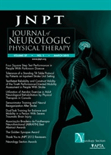
Journal of Neurologic Physical Therapy
Innovating Care for Neurologic RehabilitationJournal of Neurologic Physical Therapy, published by Lippincott Williams & Wilkins, stands as a premier resource in the field of physical therapy with a specific focus on neurology. With an ISSN of 1557-0576 and an E-ISSN of 1557-0584, this journal serves as a vital platform for researchers, practitioners, and students from 2004 to 2024, illustrating its commitment to advancing knowledge in neurologic rehabilitation. It holds a prestigious Q1 ranking in categories such as Physical Therapy, Sports Therapy, and Rehabilitation and Rehabilitation, alongside Q2 rankings in Geriatrics and Gerontology, Medicine (Miscellaneous), and Neurology (Clinical). With an impact factor that reflects its significance, the journal hosts comprehensive studies and clinical insights that propel practice and innovation in neurologic physical therapy. The content is designed to enhance understanding and skills, making it an indispensable resource for those dedicated to improving patient care and outcomes in this critical area of health.
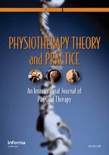
PHYSIOTHERAPY THEORY AND PRACTICE
Shaping the Future of Patient Care in Physical TherapyPHYSIOTHERAPY THEORY AND PRACTICE is a leading journal within the realm of physical therapy, sports therapy, and rehabilitation, published by Taylor & Francis Inc. With an ISSN of 0959-3985 and an E-ISSN of 1532-5040, this esteemed journal focuses on the interdisciplinary approaches and clinical practices that advance the science and application of physiotherapy. Ranking in the top 33% of its category as indicated by its Q2 status in the 2023 category quartiles, it serves as an essential conduit for innovative research and evidence-based practices. The journal has been a vital resource since its inception in 1985, continuing to attract contributions that explore the latest developments in rehabilitation and therapy strategies. Although currently not an Open Access journal, PHYSIOTHERAPY THEORY AND PRACTICE remains pivotal in shaping the landscape of health professions, providing insightful articles that empower researchers, practitioners, and students to enhance patient care and treatment strategies in an evolving field.
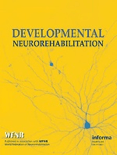
Developmental Neurorehabilitation
Empowering research in pediatric neurorehabilitation.Developmental Neurorehabilitation is an esteemed journal published by Taylor & Francis Inc, dedicated to advancing the field of developmental neuroscience and rehabilitation. With an ISSN of 1751-8423 and an E-ISSN of 1751-8431, this journal serves as a vital resource for researchers, clinicians, and students interested in innovative therapeutic approaches and rehabilitation techniques for children and adolescents. Since its inception in 1997, Developmental Neurorehabilitation has focused on disseminating high-quality research, contributing to a deeper understanding of recovery processes in developmental disorders, and facilitating interdisciplinary dialogue among professionals. With its recognition in Q2 and Q3 quartiles across prominent categories such as Pediatrics and Rehabilitation, it stands out as a pivotal publication in its field, boasting Scopus rankings that reflect its significant impact—ranked #53 in Rehabilitation and #139 in Pediatrics, among others. While maintaining a commitment to quality research, the journal does not currently offer open access but remains accessible through institutional subscriptions, further enriching the academic landscape with critical insights into rehabilitation methodologies for developmental challenges and promoting better clinical practices to improve patient outcomes.
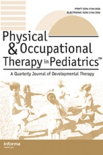
PHYSICAL & OCCUPATIONAL THERAPY IN PEDIATRICS
Empowering pediatric care through innovative therapy insights.PHYSICAL & OCCUPATIONAL THERAPY IN PEDIATRICS is a leading academic journal published by Taylor & Francis Inc, focusing on the dynamic fields of pediatric therapy and rehabilitation. With a distinguished history spanning from 1981 to 2024, this journal provides researchers, practitioners, and students with critical insights and advancements in physical and occupational therapy tailored to the unique needs of children. Renowned for its high impact factor and strong rankings, including Q1 in Occupational Therapy and impressive placements in related health categories, it serves as a vital resource for evidence-based practices. Although it operates on a subscription basis, the journal's commitment to advancing knowledge in rehabilitation methods promotes improved health outcomes for children, making it indispensable for professionals dedicated to pediatric care and therapy.
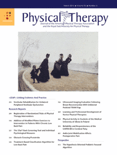
Physical Therapy
Transforming Patient Outcomes Through Rigorous Research.Physical Therapy is a leading journal in the field of rehabilitation sciences, published by Oxford University Press Inc. Renowned for its rigorous peer-reviewed articles, the journal covers a broad range of topics within physical therapy, sports therapy, and rehabilitation, making it a vital resource for researchers, clinicians, and students. With an impressive impact factor and ranking—Q1 in its category (Physical Therapy, Sports Therapy and Rehabilitation) and ranked 19 out of 247 in Scopus—this journal stands at the forefront of advancing knowledge and practice in this vital health discipline. The journal has maintained its dedication to publishing original research, systematic reviews, and clinical studies since its inception in 1964, contributing significantly to evidence-based practices in the field. With a commitment to enhancing patient care and fostering professional development, Physical Therapy remains an essential platform for the dissemination of cutting-edge research and innovative therapeutic techniques.

Journal of Pediatric Rehabilitation Medicine
Fostering Collaboration for Enhanced Pediatric Health OutcomesJournal of Pediatric Rehabilitation Medicine is a leading academic platform published by IOS PRESS, dedicated to advancing knowledge in the fields of pediatrics, rehabilitation, and physical therapy. With an ISSN of 1874-5393 and an E-ISSN of 1875-8894, this journal has carved a niche within the biomedical community, focusing on therapeutic innovations and evidence-based practices in pediatric rehabilitation. Recognized for its scholarly contributions, it holds a prestigious Q3 ranking in Pediatrics and Q2 rankings in both Physical Therapy and Rehabilitation categories, indicating its impact and relevance in the respective fields. Operating out of the Netherlands, the journal provides a comprehensive open access model that ensures that research is easily accessible to professionals, students, and researchers alike. With converged years spanning from 2007 to 2024, the journal continues to be an essential resource for those dedicated to enhancing the quality of life for children with disabilities and rehabilitation needs, fostering collaboration between clinicians and researchers through high-quality research dissemination.
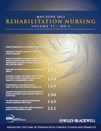
Rehabilitation Nursing
Elevating care through cutting-edge rehabilitation research.Rehabilitation Nursing, published by Lippincott Williams & Wilkins, is an esteemed journal dedicated to advancing the fields of rehabilitation, nursing, and physical therapy. With an ISSN of 0278-4807 and an E-ISSN of 2048-7940, this journal has been a crucial resource for practitioners and researchers since its inception in 1975, continuously providing insights through its convergence of scholarship up to 2024. As a member of the Q3 category in multiple disciplines, including Medicine (Miscellaneous), Nursing (Miscellaneous), and Physical Therapy, the journal affirms its relevance within the academic community, particularly highlighted by its Scopus rankings. With a focus on disseminating innovative research, clinical findings, and evidence-based practices, Rehabilitation Nursing aims to enhance patient care and foster improvements in rehabilitation strategies. Whether one seeks to stay abreast of the latest developments or contribute new insights, this journal is a must-read for those involved in the fields of rehabilitation and nursing.